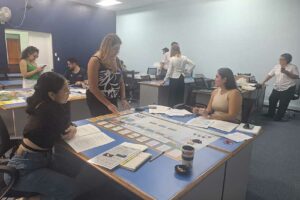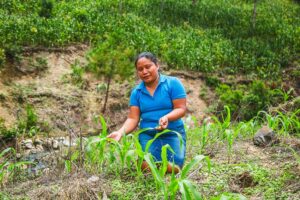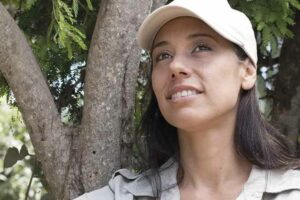Project BioPaSOS paved the way for the development of sustainable cattle ranching that manages and conserves biodiversity in Campeche
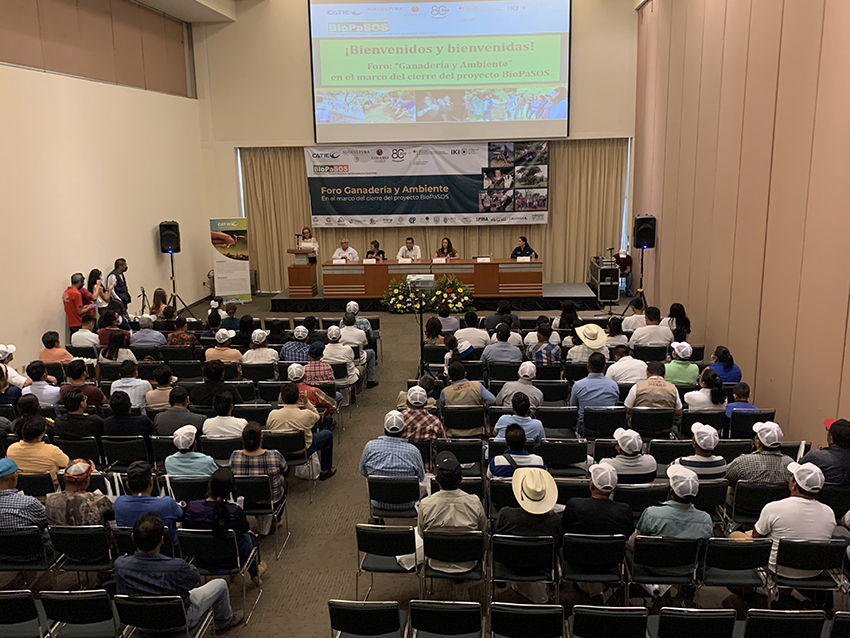
- After 6 years of implementation, the project has laid the foundations for this Mexican state to continue promoting livestock farming in harmony with the environment..
December 2, 2022. To culminate its activities in Campeche, Mexico, the Biodiversity and Sustainable Agro-silvopastoral Livestock Landscapes project, known as BioPaSOS, implemented by CATIE (Tropical Agricultural Research and Higher Education Center) and financed by the International Climate Initiative (IKI), held its Forum on December 2: Livestock and Environment, with the participation of state authorities, producer families, non-governmental organizations and academia.
The forum was inaugurated by Angélica Lara Pérez-Ríos, head of the office of the Secretariat of Environment, Biodiversity, Climate Change and Energy (SEMABICCE, its Spanish acronym), who was accompanied by Alfonso Junco Cruz, technical secretary of the Secretariat of Agricultural Development (SDA, its Spanish acronym); Claudia Sepúlveda, general coordinator of BioPaSOS of CATIE; Mario Raya, resident of the Fideicomisos Instituidos en Relación con la Agricultura (FIRA, its Spanish acronym) of the Bank of Mexico in Campeche; Agatha Rosado, director of coordination and linkages of the National Institute of Forestry, Agricultural and Livestock Research (INIFAP, its Spanish acronym) in Campeche; and Martha Escalante, executive secretary of the Innovagro Network of the Inter-American Institute for Cooperation on Agriculture (IICA).
Edwin Pérez, local BioPaSOS coordinator in Campeche, explained that the project sought sustainable management and long-term conservation of biodiversity through the promotion of agro-forestry technologies and other livestock farming practices, that is to say highly productive, profitable livestock production that is in harmony with its environment.
"With BioPaSOS we leave evidence that sustainable livestock farming has the potential to improve the livelihoods of farming families and conserve biodiversity in agricultural landscapes," Perez said.
During the forum, Sepúlveda was in charge of presenting a summary of the main results of the project. She highlighted that BioPaSOS implemented an intervention model with participatory methodologies such as Field Schools, which takes into account the analysis of local problems and the construction of participatory solutions for the promotion of silvo-pastoral systems and good livestock practices from the farm level, extending it to local, national and even global scales, in order to reduce the impact on biodiversity, the impacts of climate change and support informed and timely decision making; allowing for on-farm interventions, as well as the creation of alliances with private sector actors, academia and other partners.
To date, in Campeche's intervention territories, Project BioPaSOS has strengthened the capacities of technicians and 401 livestock producers through 22 field schools, impacting three municipalities where livestock farming is practiced.
The project also generated robust information for decision making through research on topics such as biodiversity, ecosystem services and water monitoring, silvo-pastoral practices and supplementation technologies, carbon storage, GHG emissions monitoring, among others.
The project also generated robust information for decision making through research on topics such as biodiversity, ecosystem services and water monitoring, silvo-pastoral practices and supplementation technologies, carbon storage, GHG emissions monitoring, among others.
Public-private partnerships were another pillar of BioPaSOS' actions, establishing alliances with key stakeholders in the state. An example of this in Campeche was the creation of the Sustainable Livestock Agro-ecosystems Working Group of the State of Campeche (AGS-CAM) and a network of young people and women who monitor biodiversity in agricultural landscapes in the state of Campeche (Monitores BioCam), in conjunction with the iNaturalist platform.
"Normally they say that the environmental issue is contrary to the productive issue, but today we are grateful that the Secretary of Agriculture and the Secretary of the Environment are here. I am convinced that we can establish models that help us, not only to improve the income of producers, I know it is a challenge, but I am sure that these models can also be environmentally friendly. In SEMABICCE you have an ally not only to sit down and establish public policies, but also to go hand in hand with the agricultural sector and show that Campeche can be a reference to achieve this transition," said Lara.
Sepúlveda thanked each and every one of the people and institutions that in one way or another were involved in BioPaSOS, especially IKI of BMU Germany, whose generous support made the initiative possible.
The BioPaSOS project, which was implemented by CATIE since 2016, was supported by IICA, in coordination with the National Commission for Knowledge and Use of Biodiversity (CONABIO, its Spanish acronym) and the Ministry of Agriculture and Rural Development (AGRICULTURA), together with multiple local partners in their territories of intervention, in the states of Jalisco, Chiapas and Campeche.
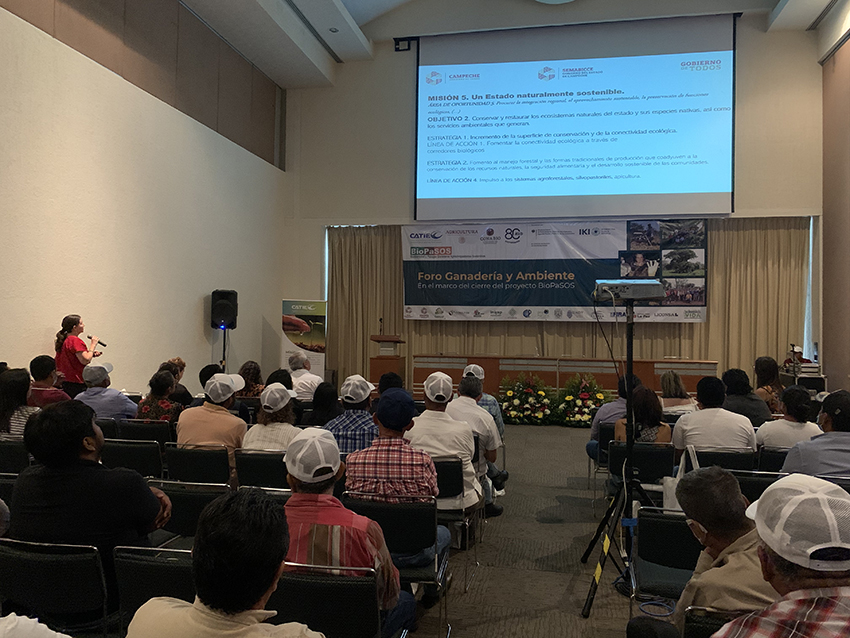
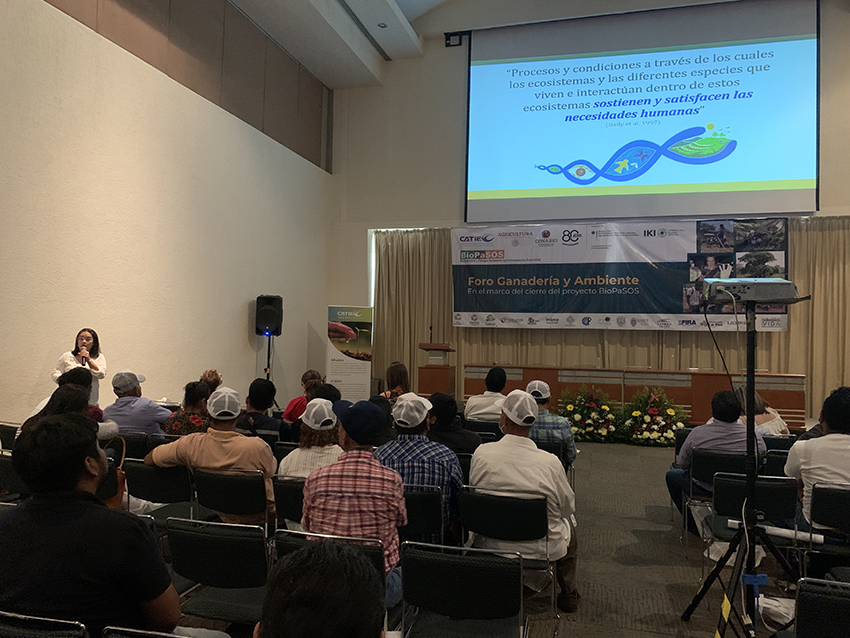
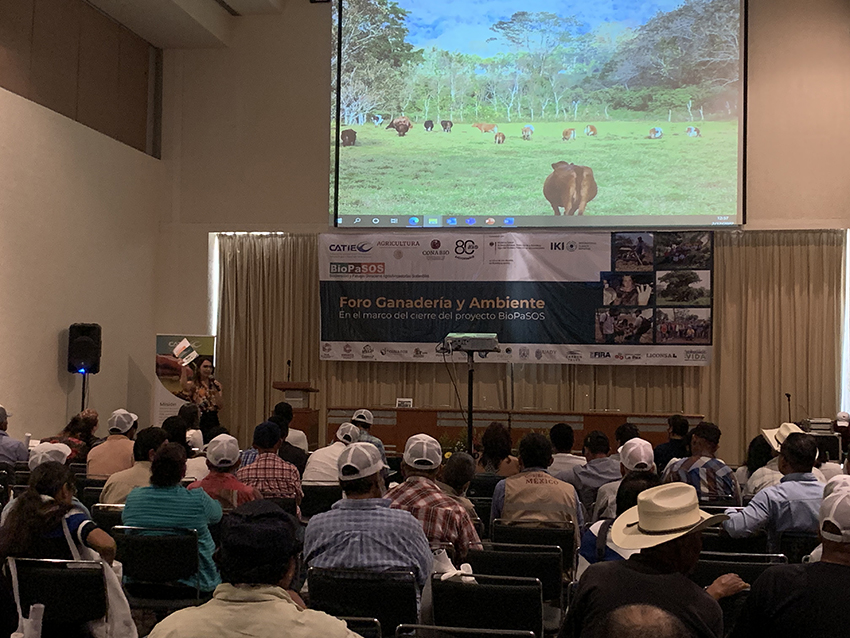
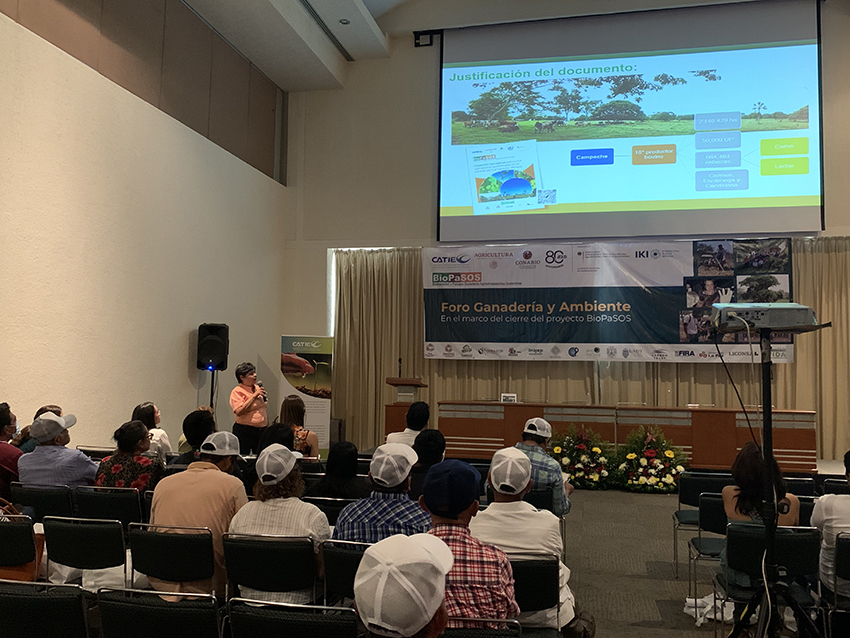
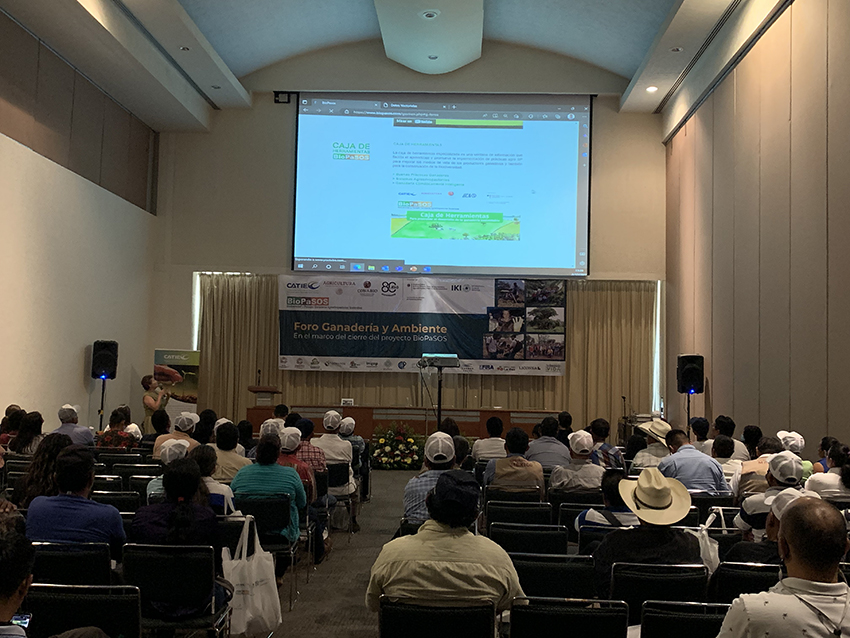
More information:
Edwin Pérez
Local Coordinator, BioPaSOS Project, Campeche
CATIE
Written by:
Karla Salazar Leiva
Communicator
Information Technology and Communication
CATIE

